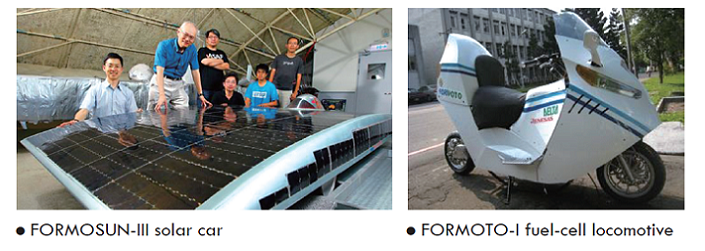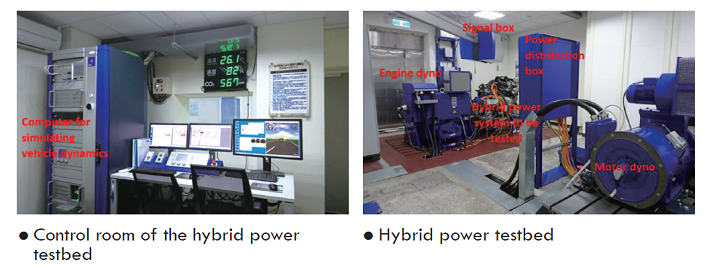The global energy and climate change crises force countries around the world to set up increasingly stringent emission standards. In response to this situation, automakers have made improving the efficiency of energy use their foremost objective. Among possible solutions, the electrification of engine vehicles is one of the most promising methods to achieve low fuel consumption and low pollution emission. Accordingly, hybrid electric vehicles or pure electric vehicles are the mainstream choices of modern vehicles and are the developing trends in a society in pursuit of clean energy. In addition to the battery system, motors and drivers with high power, a broad frequency range, and high efficiency are indispensable components for electrification.
The Advanced Power Research and Development Center (APRDC) was established in 2013 under the support of the Ministry of Science and Technology (MOST). A four-year sprout project in the Fundamental Industrial Technology Development program – High-Power System and Electric Vehicle Efficiency Improvement and Reliability Basic Technology Research – was executed. The research subjects of this project included the materials for the motors, the design and analysis of magnetic-solid-thermal coupling systems, thermal management solutions, control systems, fabrication, and system reliability. Since the project started, the Department of Mechanical Engineering has formed a strong research team devoted to the research and development of advanced motors for vehicles and the power systems of motor drives. The researchers have found the key components of the power systems required for electric vehicles or electric buses in Taiwan. These research achievements can be further extended to develop a variety of hybrid vehicles, such as range-extended electric vehicles (REEV), hybrid electric vehicles (HEV), and plug-in hybrid electric vehicles (PHEV). The Center laid a significant milestone for the development of vehicle electrification in Taiwan and its future entry into the international market.
|
 |
In 2015, the National Energy Program Phase II of MOST supported a three-year project– Intelligent Energy-saving IPHEV Power System and Xil Platform. Under the mission of saving energy in transportation, researchers have developed relevant theories, key technology, and software and hardware of PHEV power systems and intelligent electric vehicles. On the one hand, research has focused on the theoretical models of the PHEV system; such as engine power systems, motor models, and transmission systems; in addition to the development of hybrid power systems and control strategy, multi-stage system modeling and integration, and the promotion of the stability and reliability of the integrated system. All of these lead to a robust MiL (model-in-the-loop) virtual platform. On the other hand, efforts have been made to expand the existing test platform of motor power systems to a HiL (hardware-in-the-loop) test platform of hybrid power systems. Mutual verification between the MiL virtual platform and the HiL test platform has been achieved. In the meantime, a robust failure assessment and fault tolerance algorithm are the established requirements of international standards such as ISO 26262.
Currently, the Center also cooperates closely with various companies and research institutes, such as the Hua-Chuang Automobile Information Technical Center Co., Ltd. (Luxgen Motor Co., Ltd.); Gogoro, Chroma ATE, Inc.; and Industrial Technology Research Institute (ITRI), in the development of vehicle electrification. |
 |
自訂網頁 : hotlink

welcome
自訂網頁 : link_COMMUNITY

自訂網頁 : serch

Google站內搜尋器
